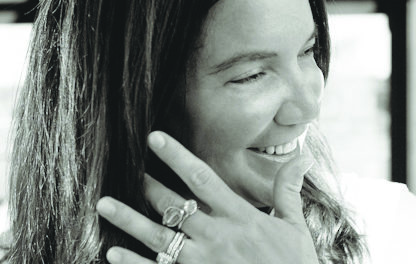I came across a meme on Facebook last week that read: “Don’t confuse kindness with being nice. Sometimes the kindest thing you can do is not be nice.”
In response, someone had commented: “Yes! Being nice is usually what we’re taught to do to make others comfortable and often at our expense and censoring how we truly feel. Being kind is genuine, heart-centered and honors the receiver as well as the giver.”
Someone else had chimed in: “In the last few years, I’ve made it a practice to NEVER be nice and always kind. People incorrectly use them interchangeably, but the meanings are not the same.“
I understood where these women were coming from – especially since the original poster had clarified with a comment, saying, “This is in reference to women being told they need to be ‘nice’ or ignore bad behavior from men.”
Nevertheless, something inside me bristled. As a general fan of “nice,” I felt the concept was getting a bum rap. I almost made a comment – something like “I strive to be nice AND kind” – but it seemed a little snarky and self-righteous and, well, not very nice.
Instead, I went to my online archives to revisit my own thoughts on “nice.” I remembered writing on the topic years ago, but couldn’t quite recall what I’d said. I was curious to see whether I’d changed my mind since then.
(It’s a mixed blessing having online archives. On the one hand, you’re able to look back and answer the question: “What was I thinking?” On the other hand, you sometimes read an old column and wonder: “What was I THINKING?”)
I readily found the piece I had in mind, an essay from 2016 called “Still Southern After All These Years,” wherein I’d reflected on a recent trip to San Francisco, and the unfriendly vibe I often encounter there:
“I’m always thrown by the way people pass each other on the street so brusquely, without greeting or even acknowledgment,” I’d written. “People don’t make eye contact. Exchanges are terse. The city prides itself on its humanitarianism and its great well of tolerance – those values are proclaimed from signs and posters and tee-shirts all over town – but to me, it always feels like everybody’s a little ticked off. There’s a low-grade hostility in the air.”
I then devoted a long chunk of the column to contrasting that hostility with the typical niceness of Southerners. Below is that entire chunk. (Sorry for the lazy self-citation, but I was up way too late last night – thanks, Water Festival! – and I just don’t have the energy to reinvent this particular wheel.)
From that 2016 piece:
In a cynical world that often frowns on “nice” – and looks upon it with suspicion – Pat Conroy valued that quality enormously. I can’t count the times over the years I heard him sing the praises of “nice.” Considering his harsh childhood, I honestly believe “nice” was a big part of Beaufort’s appeal for Conroy – one of the reasons he adopted this place as his hometown at age 15, and kept coming back here, even as he traveled the world. As a child, he didn’t get much “nice,” and he craved it until his dying day.
But what of the common accusation that Southerners only seem nice? That every “bless your heart” is a thinly veiled “go to hell”? Well, I suppose there’s a grain of truth in that. Sometimes, anyway. (But not always.) While the rest of the country steadfastly touts honesty as the best policy, demanding full disclosure in each and every situation, in the South our mamas still teach us, “If you can’t say anything nice, don’t say anything at all.” So, there’s a lot we don’t say down South. Not to your face, anyway.
I found myself in a funny conversation with my California cousins last week. Can’t remember how it started, exactly, but it ended with me saying something like, “In the South, we talk about you behind your back. That way, you don’t get your feelings hurt.” My cousins laughed. They thought I was kidding.
When I was younger and fancied myself much smarter than I now know myself to be, I frowned upon this Southern tendency to value politeness and decorum over brutal honesty. I came to believe the blunt and confrontational were morally superior to the genteel and considerate. But I’ve lived long enough now – and have known enough folks from outside the South – to know that just because somebody “says it to your face” doesn’t mean they’re not “saying it behind your back,” too. If people are going to make mean, petty remarks about me – and in this life, alas, I fear that’s a given – I actually prefer they do it behind my back. What I don’t know won’t hurt me.
Who was it that said, “What other people think of you is none of your business”? Whoever it was, I fully endorse that sentiment. If you don’t like me, just smile and pretend you do, and we’ll get along just fine.
You may call this “fake nice.” I just call it “nice.” Here in the South, we’ve always known a bit of pretense is humane . . . even necessary. It greases the wheels of society and helps things flow along. Like people all over the world, we Southerners feel cranky and critical, irritated and angry, disillusioned and disappointed often enough. Unlike people all over the world, however, we don’t wear those feelings like a badge of honor or believe much good comes from expressing them every dang time they arise.
We don’t believe in airing our dirty laundry, either. Remember when Bill Clinton lied about his affair with Monica Lewinsky? All my most enlightened friends – some from outside the South, some who just wish they were – proudly declared they couldn’t care less about Clinton’s sex life; they just couldn’t abide the fact that he’d lied about it. In my conflicted Southern heart, I couldn’t help thinking that lie Clinton told was the only part of the whole sordid scenario that smacked of human decency.
Southerners know a bit of public hypocrisy is necessary if civilization is to survive. It’s the only way fallen creatures can uphold important ideals. We prefer to confess our sins in private.
In the South, like everywhere else, we break a lot of commandments, but we take the Biblical injunction to “love thy neighbor” very seriously. We know you don’t have to “like” somebody in order to love them. Love, after all, is an action, not a feeling. Sometimes, love is just making the effort to be nice, even though you don’t feel like it.
•••
Okay, so that was 2016. But it might as well have been the Victorian era, considering how much Americans have changed since then, especially in terms of social courtesy. Even we “nice” Southerners have become meaner over the past five years.
Some would argue that the stakes are too high now – our problems too numerous and our divisions too deep – to fret over trivial niceties like “nice.” Me? I’m doubling down. I think we need “nice” now more than ever. Without “nice” as a baseline – pleasantness, politeness, respect – how do you even start a productive conversation, much less finish one, or hope to solve problems? Say what you will about Southerners – we’ve got our flaws – but when it comes to “nice,” we have a chance to show some real national leadership, y’all.
Shakespeare gave us the concept of being “cruel to be kind,” and Nick Lowe immortalized it in an irresistible ‘70s pop song. There’s something to it, to be sure, in very particular circumstances.
But more often than not, I think, you gotta be nice to be kind.






